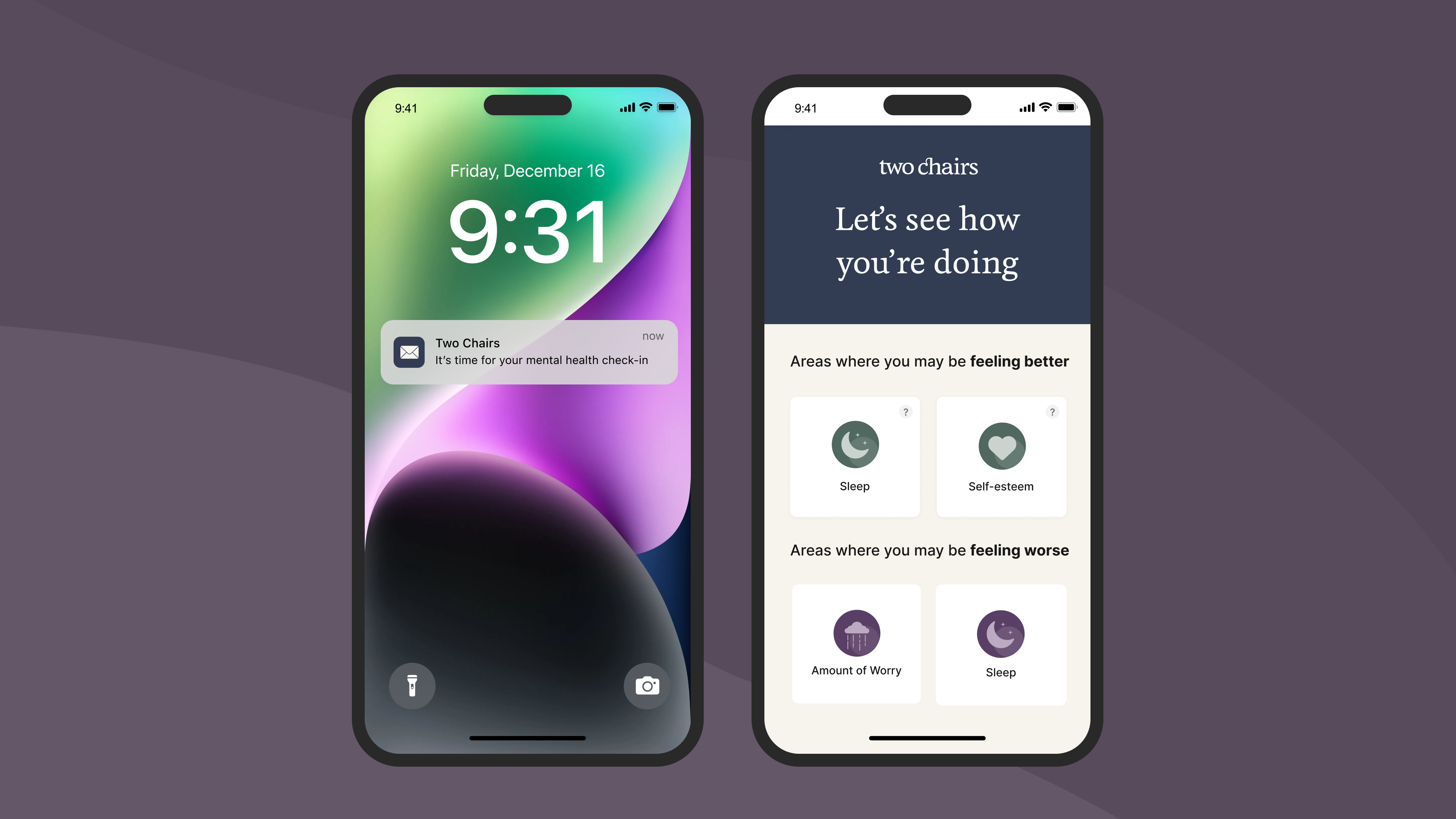
“You look at the mental health industry today, and it’s remarkable how little measurement is occurring. Less than 20% of providers are collecting any data at all, even though we now know from decades of research that measuring care and using that data to inform care makes outcomes dramatically better.”
Those were the words spoken in a recent interview by Alex Katz, CEO of Two Chairs, a San Francisco-based company offering hybrid behavioral healthcare. To buck the trend Katz described, Two Chairs announced on Tuesday that it is rolling out “mental health snapshots,” which are consistent summaries of patients’ well-being designed to offer real-time insight to both clinicians and clients.

The Funding Model for Cancer Innovation is Broken — We Can Fix It
Closing cancer health equity gaps require medical breakthroughs made possible by new funding approaches.
Founded in 2017, Two Chairs has more than 330 licensed clinicians and more 5 million covered lives across California and Washington. By rolling out mental health snapshots, the company is seeking to make it easier for clinicians and patients to understand therapeutic progress and improve mental health outcomes.
Every morning that a patient has a Two Chairs therapy session, they complete a digital check-in that takes no more than five minutes. The check-in includes questions from the PHQ-9 and GAD-7, two clinically validated assessments of anxiety and depression. Once a patient completes this check-in, Two Chairs tabulates results in a standardized clinical dashboard where therapists can view any changes to patients’ PHQ-9 and GAD-7 scores.
Then patients receive a snapshot of their progress in areas such as self-esteem, mood, sleep, restlessness and eating. Patients also receive reflection prompts and insights from their clinicians, which aid them in developing a better understanding of their mental health progress. For example, a prompt may ask a patients why they think their sleep patterns have changed or why they’re becoming more irritable lately.
These snapshots inspire patients to take a more involved role in their care and openly talk with their therapists about how the treatment is going, Katz said.

Health Executives on Digital Transformation in Healthcare
Hear executives from Quantum Health, Surescripts, EY, Clinical Architecture and Personify Health share their views on digital transformation in healthcare.
“The snapshots are prompting discussions in the room that wouldn’t have otherwise happened — and that’s accelerating progress and getting folks better,” he declared. “What we’re finding is clients are now much more likely to come into the therapy room and say, ‘You know, I want to talk about my self esteem. I want to talk about my sleep. I want to talk about specific things that are being prompted by that mental health snapshot.’”
Headspace Health is one of the few mental health companies that also tracks patient progress. Headspace’s app has a “My Progress” feature that allows users to perform monthly check-ins on their stress and anxiety levels. Two Chairs’ snapshots are unique because the results are shared with both patients and clinicians.
Progress markers are important because mental healthcare is personal and subjective, Katz pointed out. Conditions like obesity or a torn ACL have definite end goals, but patients undergoing mental health treatment usually lack that roadmap. Because of this, nearly half of patients who begin therapy end up quitting. But research shows a nearly 75% improvement in remission rates among patients whose behavioral health providers use measurement-based care compared to those whose providers don’t.
The data that Two Chairs collects can also be used to prove the value of mental healthcare to payers, which are constantly establishing new reimbursement policies, Katz said.
Photo: Two Chairs








